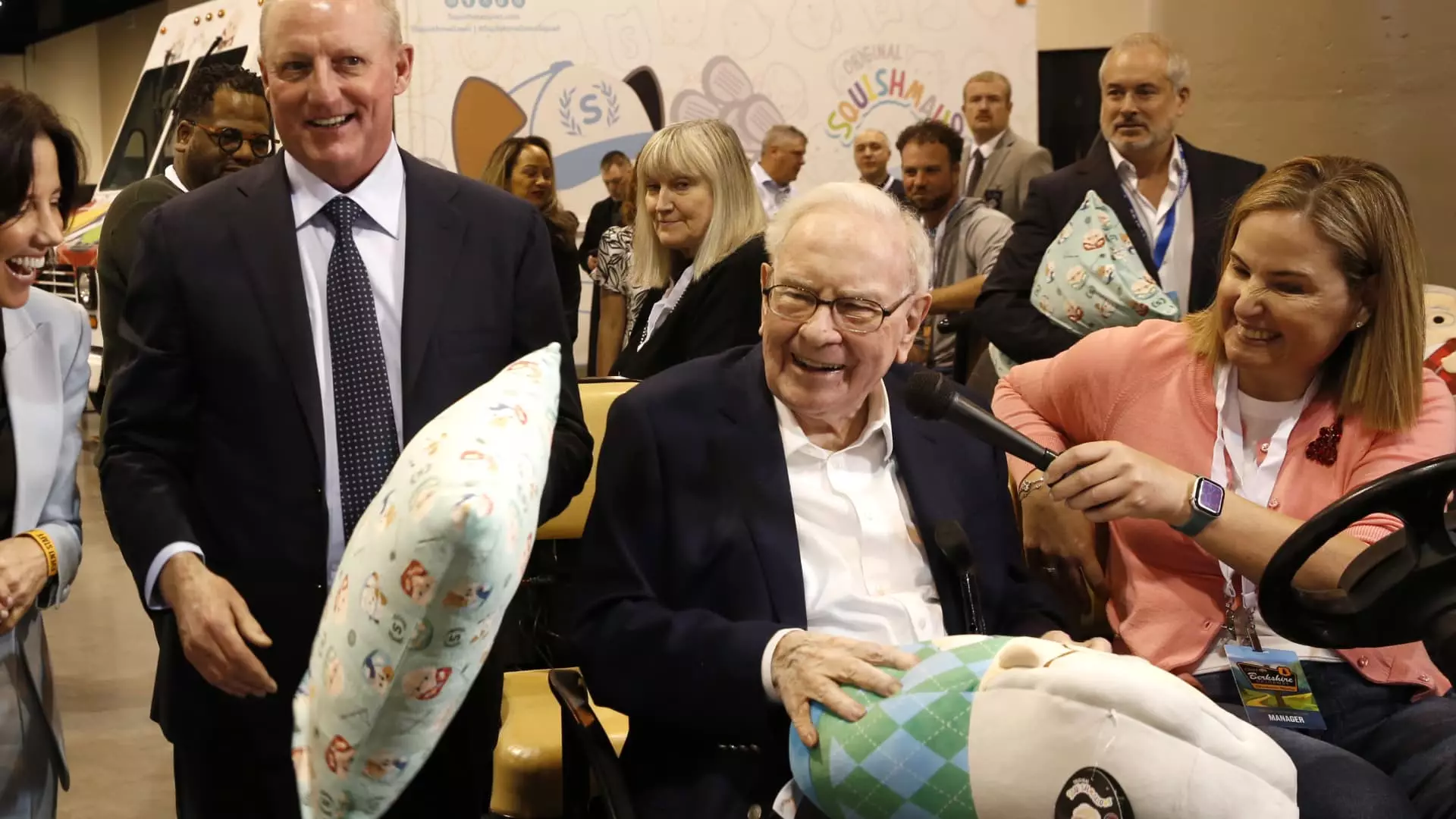Warren Buffett’s announcement in Omaha signaling Greg Abel’s ascension to the role of CEO at Berkshire Hathaway is more than just a passing of the torch; it symbolizes a seismic shift for one of the world’s most revered investment empires. While the decision may seem anticipated given Buffett’s age and the succession plan laid out in 2021, the timing has caught many off guard and represented an emotional landmark for the countless shareholders witnessing the storied conclusion of Buffett’s stewardship.
Buffett, often lauded as the “Oracle of Omaha,” not only transformed Berkshire from a failing textiles company into a sprawling conglomerate valued near $1.2 trillion, but he also turned investment philosophy into an art form. His resignation blends the familiar frisson of nostalgia with the compelling promise of what lies ahead under Abel’s leadership. Though Mr. Buffett has vowed to maintain a supportive role, the essence of his leadership and managerial style will inevitably yield to Abel’s fresh vision.
Lessons from a Legacy
To understand the significance of Buffett’s departure, one must appreciate the principles he championed. His patient, value-driven approach to investing is not merely a strategy; it’s a testament to a disciplined mindset that views market fluctuations through the lens of long-term opportunity. Abel, who stands ready to inherit this approach, represents both continuity and evolution. The question isn’t merely whether Abel will replicate Buffett’s methods; it’s whether he can bring a new cadence to this nuanced philosophy, one that resonates in today’s rapidly changing economic landscape.
One noteworthy aspect of Abel’s tenure thus far is his active managerial style, which Buffett himself has extolled. “It’s working way better with Greg than with me,” Buffett remarked, hinting at the possibility that greater day-to-day involvement could invigorate Berkshire’s operations and subsidiaries. As businesses in diverse sectors undergo radical transformations to adapt to technological advancements and consumer preferences, an agile leader like Abel may very well calibrate Berkshire’s strategies more adeptly than his predecessor.
Changing of the Guard: A Healthier Berkshire?
Berkshire Hathaway’s vast network of subsidiaries—from Geico to BNSF Railway—requires not just astute capital allocation but also responsive management. The challenges brought on by globalization, climate change, and digital disruption will necessitate innovative strategies and bold decision-making. Abel’s track record at MidAmerican Energy and transformation of CalEnergy paint him as a leader who is not afraid to roll up his sleeves and delve deep into operational mechanics, critical qualities as we venture into a fiercely competitive future.
There’s more on the table than just operational efficiency—the ideological shift in leadership may herald an era of increased environmental consciousness and social responsibility. Abel has expressed his commitment to the legacy of impactful capital allocation, yet there is room for an exploration of investments that not only yield solid returns but also contribute positively to society and the planet. In a contemporary landscape increasingly scrutinized for corporate ethics, Gideon Abel’s potential to balance profit and purpose could very well reinvigorate headlines around Berkshire.
Buffett’s Footprints on the Stock Market
Warren Buffett’s presence on Wall Street has been definitive; his every move is watched and analyzed, echoing the store of collective wisdom he has built over decades. With his staggering wealth—over $160 billion tied up in Berkshire stock—Buffett’s pledge to retain his shares as Abel takes over underscores a vote of confidence in the future leadership. As an influential voice for responsible capitalism, his demeanor at the shareholder meeting, where he fielded questions with remarkable energy, indicates he remains deeply connected to the company’s mission.
Nevertheless, one cannot overlook the speculation surrounding the upcoming board meeting where formal roles post-transition will be discussed. The role of chairman could arguably face scrutiny, especially if his son Howie steps into that position. As the stake in the family increases, so too do queries about whether Berkshire can sustain its diverse values amidst familial involvement, particularly concerning governance structures and ethical allocations.
Shareholder Sentiment in Transition
In a world of fast-paced changes, investor sentiment is a dynamic force that can alter trajectories, and Buffett’s resignation could stir mixed feelings among shareholders. Though most express admiration for Abel’s capabilities, there’s an undeniable emotional resonance tied to Buffett’s legacy—a legacy of simplicity, integrity, and unwavering determination that has inspired generations of investors. As the applause rang through the hall following Buffett’s bombshell announcement, it became clear that the congregation of investors was not only celebrating the past but also grappling with the uncertainties that lie ahead.
This transition, while inevitably challenging, may just be the catalyst for a rejuvenated Berkshire Hathaway, one that is as capable of facing the future as it has been in navigating the past. The hope is that, with Abel at the helm, Berkshire will not only maintain its storied reputation but redefine it for a new era.


Leave a Reply